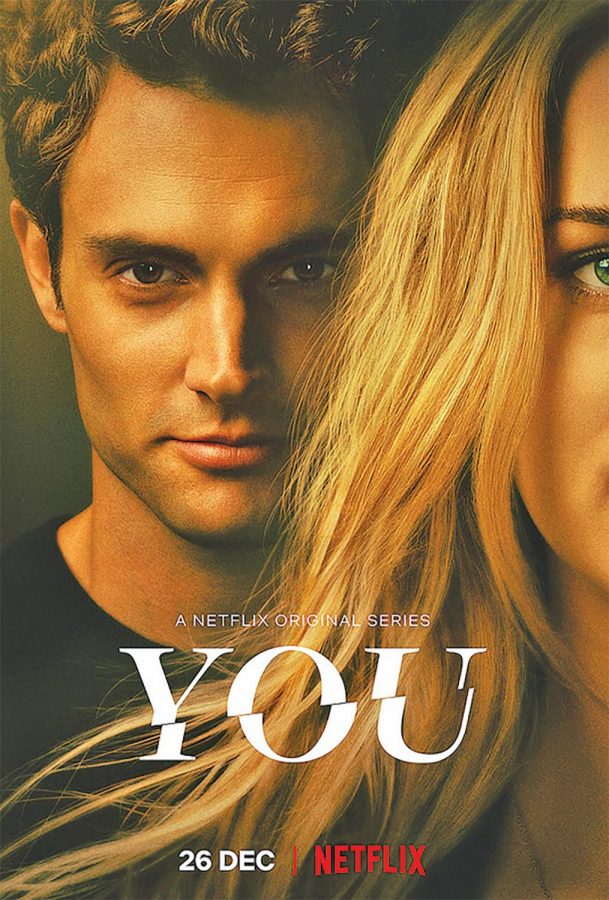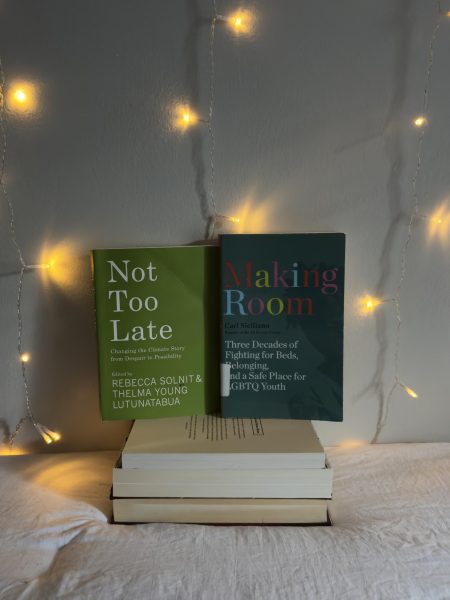Netflix show undeserving of criticism, doesn’t romanticize abuse
The show’s Instagram teased second season despite the controversy surrounding the first season.
In January of this year, Netflix released a new original series titled “You,” starring Elizabeth Lail as Beck, a young writer in New York City, and Penn Badgley as Joe, a mysterious bookstore manager. The series follows Joe as he falls in love with the young writer and attempts to win her over.
From the get-go, the audience notices irregular characteristics within Joe and the way he approaches this new romance. This quickly progresses from merely irregular behavior to completely toxic traits as Joe stalks his newfound love.
In recent years, portrayals of these unhealthy relationships in media have been criticized as being inciting. Some believe that by exploiting these topics through programming, normalization of these relationships takes place.
Although this is a fair assumption to make, it is not necessarily supported. In the age of social media, a storyline such as this one is able to pick up traction and cause debate. However, these topics are not in any way new ideas and have been depicted in various artistic elements throughout the ages.
Do viewers watch this show and see Joe’s horrifying behaviors as symbols of his love? Does this in turn affect and shape our views on relationships, allowing for not only acceptance of this behavior, but maybe even an expectation that this is how love should be? Truly, I don’t believe that’s the case.
Throughout the show, the writers took care to have Joe acknowledge toxic behaviors that others display. The audience is able to compare these actions to Joe’s and make the connection that his actions are equally, if not more damaging.
The writers also provided flashbacks of Joe’s past that allow viewers to see factors that played a role in making him who he is– a man with severe mental illness that does not know love. The average person does not watch a superhero movie and then believe that it is their duty to save the world.
This does not happen because viewers are able to separate what happens on screen from what should happen in real life. Within the consumer culture that shapes America, we are fed tons of ideas through media, but we also learn to filter through them and determine what was created for sole entertainment, and what is actually intended to be a lesson.
This isn’t the first time Netflix has received high levels of criticism for one of their original productions. The streaming site faced extreme criticism for its original series, “13 Reasons Why” following each season release.
People have accused Netflix of romanticizing dark tragedies, and they have faced backlash over this, especially because of the young audience the program caters to. However, instead of crucifying the streaming service for creating content that focuses on these topics, shouldn’t we instead take these programs as opportunities to open dialogue on the subjects at hand?
Instead of accusing the show “You” of encouraging toxic relationships, let us take this as a chance to establish what a healthy relationship looks like. The actions of Joe Goldberg, stalker and murderer, can only be seen as acts of love, when one has not been exposed to what real love actually looks like.






